|
Woo-kyoung Ahn, Yale University, USA
My main area of research interest is higher-level reasoning processes. In particular, I study how people learn and represent concepts and causal relations, and how causal explanations shape our thinking processes. I study basic cognitive
processes underlying concept and causal learning. I also study applied issues, such as how expert clinicians’ causal explanations for mental disorders affect their diagnoses, and how learning about one’s genetic predisposition
affects people’s expectations about their symptoms.
|
 Andrew Bustamante, University of California, Irvine Andrew Bustamante, University of California, Irvine
Bio coming soon.
|  Nancy Carlisle, Lehigh University Nancy Carlisle, Lehigh University
Bio coming soon. |
|
 Simon Dennis, University of Newcastle, Australia Simon Dennis, University of Newcastle, Australia
Simon Dennis the Director of the Complex Human Data Hub in the Melbourne School of Psychological Sciences and has previously held positions as the Head of School of Psychology at the University of Newcastle, Director of the
Cognitive Science Centre at Ohio State University, Associate Professor at the University of Adelaide, Research Professor at the University of Colorado, Boulder, and was a lecturer and senior lecturer in the ARC Centre for Human Factors
and Applied Cognitive Psychology, at the University of Queensland. Professor Dennis is a computer scientist by training and has extensive experience in the computational modelling of episodic and semantic memory (Dennis & Humphreys,
2001; Osth & Dennis, 2015; Landuaer, McNamara, Dennis & Kintsch, 2007; Dennis, 2004, 2005). Professor Dennis has been developing and applying passive and active experience sampling methods to understand human experience (Sreekumar,
Dennis, Doxas, Zhuang, & Belkin, 2014) and memory (Nielson, Smith, Sreekumar, Dennis & Sederberg, 2015) and has created an extensive data collection, retrieval, visualization and analysis ecosystem provided by Unforgettable
Research Services Pty Ltd of which he is the CEO.
|
|
 Emily Farran, University of Surrey, UK Emily Farran, University of Surrey, UK
Emil Farran completed her PhD at the University of Bristol in 2001. Then took on a lectureship position at the University of Reading. Then moved to the UCL Institute of Education in 2008, before joining the University of Surrey
in 2018. Her research has been funded by the Economic and Social Research Council, the British Academy, the Leverhulme Trust, the Nuffield Foundation, the Wellcome Trust, the Education Endowment Fund, the Waterloo Foundation, Autour
des Williams, the Williams Syndrome Foundation, and Fondation Jerome Lejeune.
|
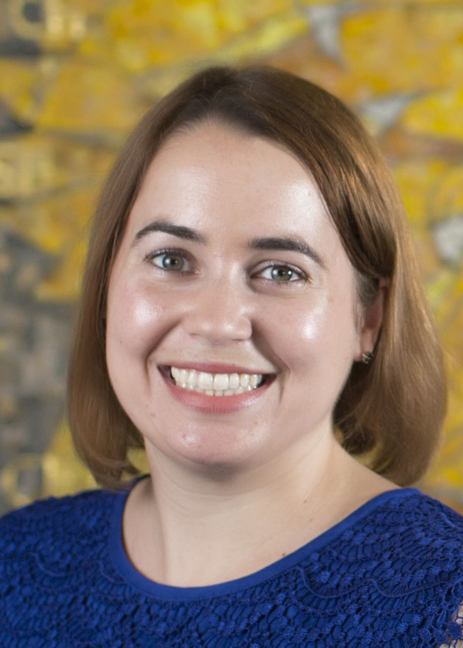 Lisa Fazio, Vanderbilt University, USA Lisa Fazio, Vanderbilt University, USA
Dr. Lisa Fazio studies how people learn new information, both true and false, and how to correct errors in people’s knowledge. She received her PhD from Duke University in 2010 and completed postdoctoral fellowships at both Carnegie Mellon University and the University of Pittsburgh. Currently an assistant professor in the Department of Psychology and Human Development at Vanderbilt University, her research focuses on how to mitigate the effects of reading false information and how to increase classroom learning. Her work informs basic theories about learning and memory, while also having clear applications for practitioners, such as journalists and teachers.
Dr. Fazio’s research focuses on the human memory system and how our brains support and derail efforts to gain new, accurate knowledge. The same processes that support everyday learning can lead us astray when we are exposed to false information.
|
|
 Heather Flowe, University of Loughborough, UK Heather Flowe, University of Loughborough, UK
Heather Flowe, PhD is a Senior Lecturer in Psychology at Loughborough University. Her research focuses on memory in applied contexts, including eyewitness identification, forensic face matching, and traumatic memory. She has a
PhD in Experimental Psychology from the University of California, San Diego.
|
|
 Andrea Frick,
University of Fribourg, Switzerland Andrea Frick,
University of Fribourg, Switzerland
Andrea Frick studied developmental psychology at the University of Zurich, Switzerland, where she received her PhD in 2006. From 2007 to 2008, she did a postdoctoral fellowship at the University of California, Santa
Cruz, funded by a scholarship from the Swiss National Science Foundation (SNSF). Subsequently, she worked as a postdoctoral fellow at Temple University in Philadelphia, as part of a NSF Science of Learning Center, devoted to understanding
and improving spatial cognition. From 2011 to 2014, Dr. Frick was an SNFS Ambizione Fellow at the University of Bern, Switzerland, where she received the Venia Docendi (Habilitation). Since 2014, she is an SNSF Professor of Developmental
Psychology at the University of Fribourg in Switzerland. Her research area is cognitive development, with a special focus on the development of spatial cognition, mental representations, and imagery abilities.
|
|
 Micah Goldwater,
University of Sydney, Australia Micah Goldwater,
University of Sydney, Australia
Micah Goldwater received his BA in Linguistics from the University of Rochester in 2003, completed his PhD in Psychology at the University of Texas at Austin in 2009, and then held a Postdoctoral Fellowship at Northwestern
University until joining the University of Sydney in 2013. Dr. Goldwater's research investigates the nature, acquisition, and use of knowledge. This work focuses on how children and adults can look past the superficial to recognize
when disparate situations, problems, or ideas share deep structural commonalities. He examines both basic processes of cognition and development, their underlying neural mechanisms, and develops applications to improve education
|
|

Hannah Hausman, University of California, Santa Cruz
Bio coming soon.
|
|
 Phil Higham,
University of Southampton, UK Phil Higham,
University of Southampton, UK
Phil Higham was educated in Canada, earning his undergraduate degree from Mount Allison University and PhD from McMaster University. The early part of his career was spent at the University of Northern British Columbia.
Then moved to the University of Southampton in the UK where he has been since 2000. His research focuses on long-term human memory and metacognition, broadly defined. His research topics have included implicit learning, recognition
memory, recall, judgments of learning, signal detection theory, and auditory hindsight bias. More recently, his research has been focused primarily on applications of cognitive and metacognitive psychology to university education.
The goal of this research is to identify methods and activities that enhance student learning and which ensure that learning endures over time.
|
 Mark Huff, University of Southern Mississippi, USA Mark Huff, University of Southern Mississippi, USA
Dr. Mark Huff is an Associate Professor of Psychology in the Brain and Behavior program at The University of Southern Mississippi. Dr. Huff received his PhD from the University of Calgary in 2013, followed by an NIH-funded postdoctoral fellowship in adult development and aging at Washington University in St. Louis. Dr. Huff's work focuses on separating contributions of encoding and retrieval processes in both basic and applied settings with the goal of improving memory accuracy across the lifespan. Recently, his work has examined different memory processes that can contribute to the development of false memory errors and how metamemorial processes and attentional control capacities can serve as moderating factors. Dr. Huff's work has been funded by the NIH, the McDonnell Foundation, and the John Templeton Foundation. |
|
 Toru Ishikawa,
University of Toyo, Japan Toru Ishikawa,
University of Toyo, Japan
Toru Ishikawa specializes in cognitive-behavioral geography and spatial information science, and conducts research on various aspects of human spatial cognition and behavior. His research interests include cognitive
mapping and spatial behavior, individual differences in the structures and processes of spatial knowledge, wayfinding and navigation, spatial ability and spatial thinking, navigation assistance and geospatial technologies, and geospatial
awareness in a spatially enabled society.
|
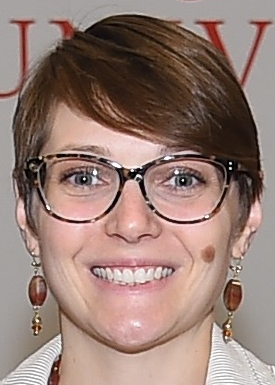 Allison J. Jaeger,
St. John's University, USA Allison J. Jaeger,
St. John's University, USA
Dr. Allison Jaeger is an Assistant Professor in the Psychology Department at St. John’s University in Queens, New York where she runs the STEM Thinking and Reasoning Laboratory. Dr. Jaeger’s research
interests are situated at the intersection of education and cognitive psychology. Her research explores how individual differences in cognitive capacities such as spatial thinking impact STEM learning and how learning materials and instructions
can be designed to support learning for all types of students. She also investigates how these same materials and instructions can impact students’ metacomprehension accuracy. Dr. Jaeger received her PhD from the University of Illinois
at Chicago in 2015 under the advisement of Dr Jennifer Wiley. Afterwards, she worked with Drs. Thomas Shipley and Nora Newcombe in the Department of Psychology at Temple University as a postdoctoral research fellow.
|
|
 Roberta Klatzky,
Carnegie Mellon, USA Roberta Klatzky,
Carnegie Mellon, USA
Roberta Klatzky is the Charles J. Queenan Jr. Professor of Psychology and Human-Computer Interaction at Carnegie Mellon University. She received a B.S. in mathematics from the University of Michigan and a PhD in cognitive
psychology from Stanford University. She is the author of over 300 articles and chapters. Her research investigates perception, spatial thinking and action from the perspective of multiple modalities, sensory and symbolic, in real
and virtual environments. Klatzky's basic research has been applied to tele-manipulation, image-guided surgery, navigation aids for the blind, and neural rehabilitation. She is a fellow of several psychological societies, a Senior
Member of the Institute of Electrical and Electronics Engineers (IEEE). and a member of the Society of Experimental Psychologists (honorary). Her professional service includes governance roles in several societies and membership on
panels of the National Academy of Sciences as well as research review panels.
|
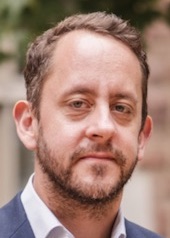 Wouter Kool,
Washington University in St. Louis, USA Wouter Kool,
Washington University in St. Louis, USA
Wouter Kool is an Assistant Professor of Psychological & Brain Sciences at Washington University in St. Louis. His research explores the interactions between cognitive control, decision
making, and reinforment learning, aiming to understand how the brain implements effort-based decision making, how the mind arbitrates multiple choice strategies, and how people learn to adapt these arbitration processes in dynamic learning
contexts. In recent years, he has become interested in applying his behavioral paradigms and findings to understand real-world phenomena related to development, aging, and psychopathological disorders.
|
|
 Melina Kunar,
University of Warwick, UK Melina Kunar,
University of Warwick, UK
Many tasks involve attention (e.g. driving, searching a web page for relevant information etc.) making it an important focus of research. Melina's research investigates how people attend and search different types
of displays and how they use this information to inform their preferences and decision making. The findings have many applications for socially important tasks, such as how to improve search for cancerous indicators in medical images,
baggage screening for threats at an airport, and how distraction (for example, by talking on mobile phones) interferes with driving.
|
|
 Karen Lander,
University of Manchester, UK Karen Lander,
University of Manchester, UK
Karen Lander is a Senior Lecturer in the Division of Neuroscience and Experimental Psychology at the University of Manchester, UK. She has a BSc Psychology from the University of York and a PhD in Experimental Psychology
from the University of Stirling. Her research focuses on the perception and recognition of faces including work on identity, expression recognition and voice perception. She is particularly interested in face motion and individual
differences in recognition performance, both from a theoretical and practical perspective. More recent work has considered face recognition abilities in different clinical groups (for example, prosopagnosia, autism, Parkinson’s, schizophrenia
etc). She is enthusiastic about the public engagement of science and is a committee member of the British Science Association, Psychology section. Her work has been funded by the Leverhulme Trust, ESRC, Parkinson’s UK, EPSRC and the
British Academy.
|
|
 Dan Levin,
Vanderbilt University, USA Dan Levin,
Vanderbilt University, USA
Daniel Levin received his BA from Reed College and his PhD from Cornell University. He is currently Professor of Psychology at Vanderbilt University where he does research exploring the relationship between visual
perception and knowledge in a variety of contexts. Some of his work explores scene and event perception in naturalistic contexts such as cinema and other work explores how concepts about agency affect interactions with technology.
His work has been funded by the NSF and NIH.
|
|
 Robert Logie,
University of Edinburgh, Scotland Robert Logie,
University of Edinburgh, Scotland
Robert Logie completed his PhD in Psychology at University College London in 1981. He has worked at the MRC Applied Psychology Unit, Cambridge UK, the University of Aberdeen UK, The University of Bergen Norway, Kyoto University Japan, and since 2004 has been Professor of Human Cognitive Neuroscience at the University of Edinburgh, UK. Research and teaching interests lie in the cognition of human memory in the healthy, ageing, and damaged brain, focused on experimental behavioural studies of working memory. The approach is both theoretical and applied, with projects ranging from developing cognitive theories of working memory in the healthy brain through attention and memory deficits associated healthy aging, with focal brain damage and with neurodegeneration, to design of computerized patient monitoring for medical decision support in intensive care and the interaction between human and digital information storage. He is a previous editor of the Quarterly Journal of Experimental Psychology, past chair (2015) of The Psychonomic Society and of a European Research Council grants panel. Currently he is an Associate Editor for Journal of Experimental Psychology: General, and leads an ‘adversarial research collaboration’ on working memory across the lifespan involving researchers in the USA, Switzerland, and the UK.
|
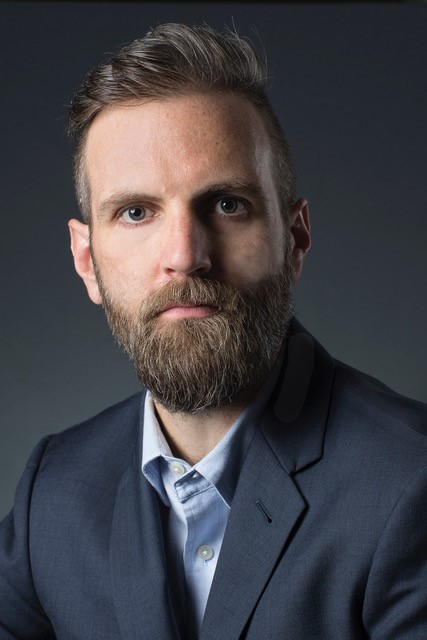 Christian Luhmann,
Stony Brook University, USA Christian Luhmann,
Stony Brook University, USA
Bio coming soon. |
|
 Laura Mickes,
University of Bristol, UK Laura Mickes,
University of Bristol, UK
Dr. Laura Mickes is a Reader at the University of Bristol. Her interests cover basic research (e.g., signal detection and dual process theories of recognition memory), applied research (e.g., applications of eyewitness
memory), and the intersection of the two (e.g., signal detection models of eyewitness identification). Her work is funded by the US National Science Foundation, UK Economic and Social Research Council, British Academy, and Australian
Research Council. She has been awarded a 2013 APA New Investigator Award and 2015 APS Rising Star Award.
|
|
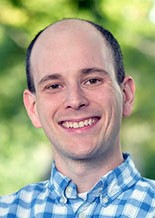 Jeff Moher,
Connecticut College, USA Jeff Moher,
Connecticut College, USA
Jeff Moher is an Assistant Professor of Psychology at Connecticut College. Jeff’s lab conducts research on a variety of questions related to cognition and attention including why distractions occur, when they are likely to arise, and what mechanisms humans can harness to avoid them. The lab employs a variety of methods including psychophysics, three-dimensional reach-tracking, eyetracking, and electroencephalography to study these questions. Jeff earned his B.S. in Brain, Behavior and Cognitive Science from the University of Michigan in 2006 and a Ph.D. in Psychological and Brain Sciences from Johns Hopkins University in 2011. Before joining the faculty at Connecticut College, Jeff was a postdoctoral scholar at Brown University and a Visiting Assistant Professor at Williams College.
|
 Mark Neider, University of Central Florida Mark Neider, University of Central Florida
Bio coming soon. |
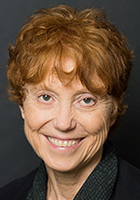 Nora S. Newcombe,
Temple University, USA Nora S. Newcombe,
Temple University, USA
Nora S. Newcombe, Ph.D. , is a Professor of Psychology at Temple University and PI of the Spatial Intelligence and Learning Center (SILC), headquartered at Temple and involving Northwestern, the University of Chicago and the University of Pennsylvania as primary partners. Dr. Newcombe has served as Editor of the Journal of Experimental Psychology: General and as Associate Editor of Psychological Bulletin, as well as on numerous editorial boards and grant review panels. She is currently an Associate Editor for Cognitive Psychology and for WIRES in Cognitive Science. Honors include the William James Fellow Award from APS, and the George Miller Award and the G. Stanley Hall Awards from APA, the Award for Distinguished Service to Psychological Science, also from APA, and the Women in Cognitive Science Mentor Award. She is a fellow of four divisions of the American Psychological Association (General, Experimental, Developmental, and Psychology of Women), of the American Psychological Society, and of the American Association for the Advancement of Science, and has been a Visiting Professor at the University of Pennsylvania, Princeton, and the Wissenschaftskolleg in Berlin. She is a member of the American Academy of Arts and Sciences and the Society of Experimental Psychologists. |
|
 Michael Proulx,
University of Bath, UK Michael Proulx,
University of Bath, UK
Dr Michael J. Proulx is Associate Professor (Reader) of Psychology and director of the Crossmodal Cognition Lab at the University of Bath, where he is also an affiliate of the Centre for Digital Entertainment in
Computer Science. His research focuses on several aspects of crossmodal cognition and multisensory processes with a particular interest in the vision sciences and the role of visual experience on cognition. He also works on the development
of assistive devices for the visually impaired, and on perception in virtual reality. He received his BS in Psychology from Arizona State University and his MA and PhD in Psychological and Brain Sciences from Johns Hopkins University.
He is a Fellow of the Society of Experimental Psychology and Cognitive Science of the American Psychological Association.
|
|
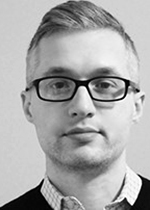 David Rapp,
Northwestern University, USA David Rapp,
Northwestern University, USA
Dr. David N. Rapp is a Professor in the School of Education and Social Policy and the Department of Psychology at Northwestern University. His research examines language and memory, focusing
on the cognitive mechanisms responsible for successful learning and knowledge failures, including the consequences of exposure to inaccurate information from diverse sources and discourse experiences. This work has been funded by agencies
including the National Science Foundation, the U.S. Department of Education, the National Institute on Aging, and Instagram. His recent books include the co-edited volumes Processing Inaccurate Information: Theoretical and Applied
Perspectives from Cognitive Science and the Educa1onal Sciences from MIT Press, and The Handbook of Discourse Processes, second edition, from Routledge. He has received a McKnight Land-Grant Professor award from the University of Minnesota,
the Tom Trabasso Young Investigator Award from the Society for Text & Discourse, and is a Fellow of the Association for Psychological Science. He is currently Editor at the journal Discourse Processes and an Associate Editor at
the Journal of Experimental Psychology: Applied.
|
 Zachariah Reagh,
Washington University in St. Louis, USA Zachariah Reagh,
Washington University in St. Louis, USA
Zachariah Reagh is an Assistant Professor at Washington University in St. Louis. His work is motivated by two main questions: (1) How does the human brain parse, store, and retrieve dynamic
experiences, like those we encounter in our everyday lives? (2) How do these processes change in healthy aging and with age-related pathology, such as Alzheimer's disease? His lab often uses realistic stimuli (such as movies and stories)
in combination with behavioral experiments and functional neuroimaging techniques. Recent studies in the lab focus on distinct contributions of different brain networks to building memories for events, and selective vulnerabilities of
these networks in neurocognitive aging.
|
|
 Ulf-Dietrich Reips,
University of Konstanz, Germany Ulf-Dietrich Reips,
University of Konstanz, Germany
Ulf-Dietrich Reips is a full professor in the Faculty of Sciences at the University of Konstanz, where he holds the Chair for Psychological Methods, Assessment, and iScience. For more than two decades he has been working
on Internet-based research methodologies (or Internet science), the psychology of the Internet, measurement, development, and the cognition of causality. In 1994, he founded the Web Experimental Psychology Lab, the first laboratory
for conducting real experiments on the World Wide Web. Ulf has worked, lived, and studied in California, Colorado, Israel, Germany, Spain, Switzerland, and the UK. Recently, he has been asked to direct the Leibniz institute for Psychology
information in Trier, Germany, but decided to stay at University of Konstanz. Ulf and his team develop and provide free Web tools for researchers, teachers, students, and the public. They received numerous awards for their Web applications
(available from the iScience Server at http://iscience.eu/) and methodological work serving the research community.
|
|
 Ben Rottman,
University of Pittsburgh, USA Ben Rottman,
University of Pittsburgh, USA
Ben Rottman is interested in how people learn and reason about probabilistic information, with two more specific foci. First, he studies how individuals learn about cause-effect relations and make use of causal structure
knowledge for making judgments and predictions. Much of his work focuses specifically on how people learn about temporal patterns in causal relations, such as learning about cause-effect relations that exhibit patterns of tolerance
or sensitization, or non-stationary trends in variables over time, all of which make causal inference harder. Second, he is broadly interested in medical decision making from probabilistic data. In particular he has studied how physicians
make diagnoses, how mental health professionals think about mental disorders, and causes of patient non-adherence to medication recommendations.
|
 Yelda Semizer, New Jersey Institute of Technology Yelda Semizer, New Jersey Institute of Technology
Bio coming soon.
|
|
 Lael Schooler,
Syracuse University, USA Lael Schooler,
Syracuse University, USA
Lael is a Professor of Psychology at Syracuse University. Before joining the psychology department at Syracuse, he was a Senior Researcher at the Center for Adaptive Behavior and Cognition. His research into the cognitive
foundations of decision making and simple heuristics—decision strategies that use limited information to make effective decisions in an uncertain world— is informed by the ACT-R theory of cognition that supports the development of
computer simulations that make predictions about human behavior. He received his BA from Wesleyan University in 1986 and his PhD in Psychology from Carnegie Mellon University in 1993.
|
|
 Khena Swallow,
Cornell University, USA Khena Swallow,
Cornell University, USA
Dr. Khena Swallow is an Assistant Professor in the Psychology Department at Cornell University where she runs the Attention, Memory, and Perception Laboratory. Dr. Swallow’s primary interests lie in understanding how
everyday events and the external environment shape attention and memory. Her recent research has examined how encountering events that require a shift in a person’s activity influences their ability to selectively attend to moments
in time, spatial locations, and sensory modalities. Other research has examined how people perceive, attend to, and remember everyday events, and how regularities in the environment are learned and influence where and when people direct
attention. Dr. Swallow received her PhD from Washington University in St. Louis in 2007 under the advisement of Dr. Jeffrey Zacks. Afterwards, she worked with Dr. Yuhong Jiang in the Department of Psychology at the University of Minnesota
as a postdoctoral and research associate.
|
|
 Holly A. Taylor,
Tufts University, USA Holly A. Taylor,
Tufts University, USA
Holly A. Taylor earned her bachelors degree in Mathematics from Dartmouth College in 1987 and her PhD in Cognitive Psychology from Stanford University in 1992. Her research has focused on higher order cognition, including
spatial cognition, embodied cognition, and discourse processing, as well as the intersection of these research areas. She has held a consistent focus on real-world applications of basic science, including applications to navigation,
education, and technology development.
|
 Nathan Ward, Tufts University Nathan Ward, Tufts University
Bio coming soon.
|  Miko Wilford, University of Massachusetts, Lowell Miko Wilford, University of Massachusetts, Lowell
Bio coming soon. |
|
 Jessica K. Witt,
Colorado State University, USA Jessica K. Witt,
Colorado State University, USA
Dr. Jessica K. Witt is a Professor in Psychology at Colorado State University. She received her Ph.D. from the University of Virginia in 2007. Dr. Witt won the American Psychological Association's
Distinguished Scientific Award for Early Career Contribution to Psychology (2017), the Janet Taylor Spence Award for Transformative Early Career Contributions from APS (2015) and the Steve Yantis Early Career Award from the Psychonomic
Society (2014). Dr. Witt’s research explores how a person’s ability to act such as hit a softball or climb a hill affects spatial perception of the target. She has extended this research to explore the impacts of wielding a gun on
judgments of others as also having a gun. More recently, Dr. Witt has also applied her skills as a vision scientist to study how best to visualize quantitative information. Her research focuses on conveying uncertainty such as the
uncertainty in predicting hurricane paths, medical treatments and diagnoses, COVID-19, and temperature forecasts.
|
|
 Jeremy M. Wolfe, Harvard Medical School / Brigham & Women's Hospital, USA Jeremy M. Wolfe, Harvard Medical School / Brigham & Women's Hospital, USA
Jeremy Wolfe is Professor of Ophthalmology and Professor of Radiology at Harvard Medical School. He is Director of the Visual Attention Lab at Brigham and Women's Hospital. Wolfe received an AB in Psychology in 1977 from Princeton
and his PhD in Psychology in 1981 from MIT. His research focuses on visual search and visual attention with a particular interest in socially important search tasks in areas such as medical image perception (e.g. cancer screening),
security (e.g. baggage screening), and intelligence. His lab has been funded since 1982 by NIH (NEI, NIMH, NCI), NSF, AFOSR (Air Force), ONR (Navy), ARO (Army), Homeland Security, and the Nat. Geospatial Agency as well as by IBM,
Google, Toshiba, Hewlett-Packard, & GE. Wolfe taught Intro. Psychology and other courses for 25 years, mostly at MIT. He has served as Past President or Chair of the Federation of Associations in Behavioral and Brain Sciences
(FABBS), Psychonomic Society, APA Division 3, Eastern Psychological Association, NAS Panel on Soldier Systems. He has served on the Governing Boards of the Vision Sciences Society and APA Divisions 1 and 6. Wolfe was Founding Editor-in-Chief
of Cognitive Research: Principles and Implications (CRPI), the newest Psychonomic Society journal, and Past-Editor of
Attention, Perception, and Psychophysics. Wolfe also serves on the Board of the North American Board of the Union for Reform Judaism. He was elected to the American Academy of Arts and Sciences in 2019.
|
 Cindy Xiong, University of Massachusetts Amherst Cindy Xiong, University of Massachusetts Amherst
Bio coming soon. |
 Jeffrey M. Zacks, Washington University in St. Louis, USA Jeffrey M. Zacks, Washington University in St. Louis, USA
Jeffrey M. Zacks is Professor and Associate Chair of Psychological & Brain Sciences, and Professor of Radiology, at Washington University in St. Louis. He received his BA from Yale University and his PhD from Stanford University in 1999. His research has been funded by the Defense Advanced Research Projects Agency, the National Science Foundation, the National Institutes of Health, the Office of Naval Research, and the James S. McDonnell Foundation. He has served as Associate Editor of the journals Cognition, Cognitive Research: Principles & Implications, and Collabra, Chair of the Board of Scientific Affairs of the American Psychological Association, and Chair of the governing board of the Psychonomic Society. He is the recipient of scientific awards from the National Science Foundation, Psychonomic Society, American Psychological Association and the American Psychological Foundation, and is a fellow of the American Association for the Advancement of Science, the Association for Psychological Science, the American Psychological Association, the Midwest Psychological Association, and the Society of Experimental Psychologists. Zacks is the author of three books, Flicker: Your Brain on Movies, Event Cognition (with G.A. Radvansky), and Ten Lectures on the Representation of Events in Language, Perception, Memory, and Action Control, and co-editor of Understanding Events (with Thomas F. Shipley) and Representations in Mind and World: Essays Inspired by Barbara Tversky (with Holly A. Taylor). He has published more than 90 journal articles and also has written for Salon, Aeon, and The New York Times. |
|